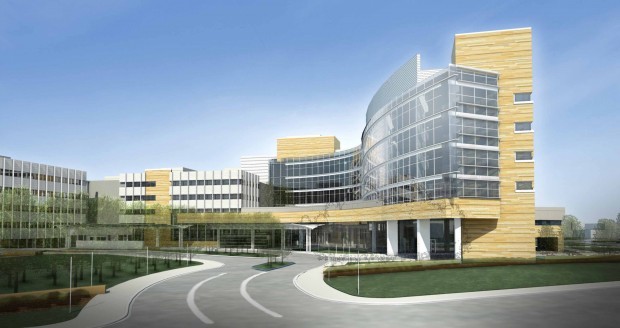Gundersen Health System, a network of hospitals, medical clinics, and nursing homes in Wisconsin, announced that it is producing more energy than it consumes, making it the first net-zero energy health system in the U.S.
Gundersen is using biogas from three local farms, methane from a local landfill, wood chips from local suppliers, solar panels installed on a parking lot, geothermal systems, and wind from two local projects. Energy consumption has been reduced by 40%, saving $2 million a year. The network also earns $2 million by selling surplus electricity and manure byproducts of biogas production.
"We did not set out to be the greenest health system, we set out to make the air better for our patients to breathe, control our rising energy costs, and help our local economy,” according to CEO Jeff Thompson. The accomplishment is particularly noteworthy given the industry and the climate, Thompson says.
He notes that hospitals typically consume 2.5 times more energy than commercial buildings, and Wisconsin’s harsh winters make it one of the most energy-intensive climates in the nation. Gundersen has also made great strides in waste reduction. Hazardous and pharmaceutical waste has been reduced by 40%, food waste by 70%, and styrofoam waste has been eliminated.
(http://www.sustainablebusiness.com/index.cfm/go/news.display/id/26068)
Related Stories
| Sep 30, 2022
Lab-grown bricks offer potential low-carbon building material
A team of students at the University of Waterloo in Canada have developed a process to grow bricks using bacteria.
| Sep 27, 2022
New Buildings Institute released the Existing Building Decarbonization Code
New Buildings Institute (NBI) has released the Existing Building Decarbonization Code.
| Sep 22, 2022
Gainesville, Fla., ordinance requires Home Energy Score during rental inspections
The city of Gainesville, Florida was recently recognized by the U.S. Dept. of Energy for an adopted ordinance that requires rental housing to receive a Home Energy Score during rental inspections.
| Sep 19, 2022
New York City construction site inspections, enforcement found ‘inadequate’
A new report by the New York State Comptroller found that New York City construction site inspections and regulation enforcement need improvement.
| Sep 16, 2022
Fairfax County, Va., considers impactful code change to reduce flood risk
Fairfax County, Va., in the Washington, D.C., metro region is considering a major code change to reduce the risk from floods.
| Sep 13, 2022
California building codes now allow high-rise mass-timber buildings
California recently enacted new building codes that allow for high-rise mass-timber buildings to be constructed in the state.
| Sep 8, 2022
U.S. construction costs expected to rise 14% year over year by close of 2022
Coldwell Banker Richard Ellis (CBRE) is forecasting a 14.1% year-on-year increase in U.S. construction costs by the close of 2022.
| Aug 29, 2022
Montana becomes first U.S. state to approve 3D printing in construction
Montana is the first U.S. state to give broad regulatory approval for 3D printing in building construction.
| Aug 25, 2022
New York City’s congestion pricing aims to reduce traffic, cut carbon
Officials recently released an environmental assessment that analyzes seven different possible pricing schemes for New York City’s congestion pricing program.
| Aug 23, 2022
New Mass. climate and energy law allows local bans on fossil fuel-powered appliances
A sweeping Massachusetts climate and energy bill recently signed into law by Republican governor Charlie Baker allows local bans on fossil fuel-powered appliances.

















